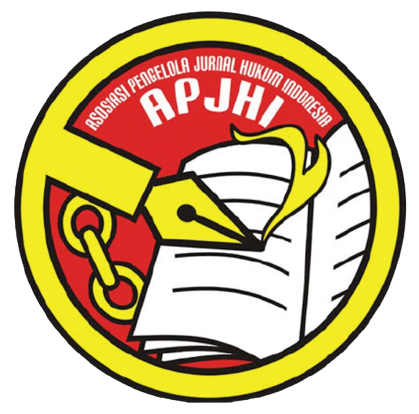Kedudukan UU Cipta Kerja Terhadap UU-PPLH dan Implikasinya
Abstract
Keywords
Full Text:
PDFReferences
Amania, Nila. “PROBLEMATIKA UNDANG-UNDANG CIPTA KERJA SEKTOR LINGKUNGAN HIDUP.” Jurnal Syariati: Jurnal Studi Al-Qur’an dan Hukum VI, no. 2 (2020).
Hasanuddin Hasim. “HIERARKI PERATURAN PERUNDANG-UNDANGAN NEGARA REPUBLIK INDONESIA SEBAGAI SUATU SISTEM.” Madani Legal Review 1, no. 2 (2017): 120–130. https://www.hukumonline.com/klinik/detail/ulasan/cl4012/hierarki-peraturan-perundang-undangan-di-indonesia.
Helmi, Fauzi Syam, Nopyandri, Akbar Kurnia Putra. “Evaluation of the Regulation Changes on Environment and Forestry in Indonesia.” Hasanuddin Law Review 6, no. 1 (2020): 100–108. http://pasca.unhas.ac.id/ojs/index.php/halrev/article/view/2290.
Helmi, Fitria, Retno Kusniati. “PENGGUNAAN OMNIBUS LAW DALAM REFORMASI REGULASI BIDANG LINGKUNGAN HIDUP DI INDONESIA.” Masalah-Masalah Hukum 50, no. 1 (2021): 24–35. https://ejournal.undip.ac.id/index.php/mmh/article/view/33736.
Irawan Febriansyah, Ferry. “Konsep Pembentukan Peraturan Perundang-Undangan Di Indonesia.” Perspektif 21, no. 3 (2016): 220–229. http://jurnal-perspektif.org/index.php/perspektif/article/view/586.
PSHK, Indonesia. Menggagas Arah Kebijakan Reformasi Regulasi Di Indonesia. Yayasan Studi Hukum dan Kebijakan Indonesia (YSHK), 2019.
Rachma, Adelia, Indriaswari Susanto, Aqsal Adzka, Cora Kristin Mulyani, Muhammad Hamzah, Al Faruq, Natalische Ramanda, and Ricko Aldebarant. “Mengupas Omnibus Law Bikin Ga(k) Law.” Dewan Mahasiswa Justicia 5, no. 1 (2020): 1–24.
Republik, Indonesia. UU Cipta Kerja, n.d.
SH., Prof. Dr. Jimly Asshiddiqie; Perihal Undang-Undang. Depok: Rajawali Pers, 2017.
“Naskah Akademik RUU Cipta Lapangan Kerja” (2020): 1–9.
DOI: http://dx.doi.org/10.30652/jih.v10i2.8167
Refbacks
- There are currently no refbacks.
Jurnal Ilmu Hukum has been indexed by:
|

.png)





G.png)




